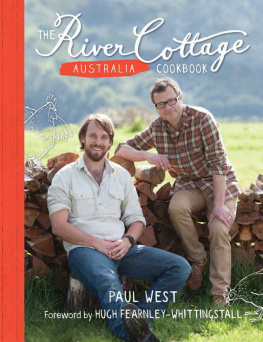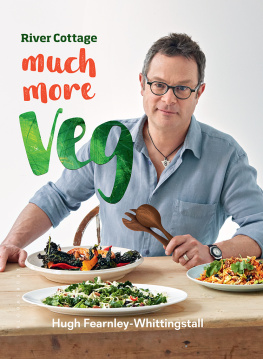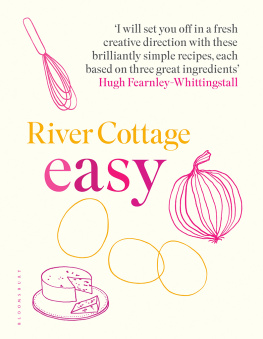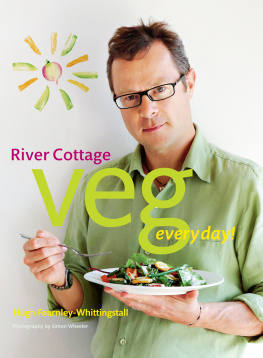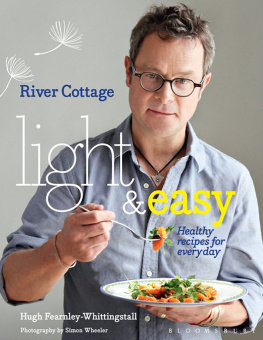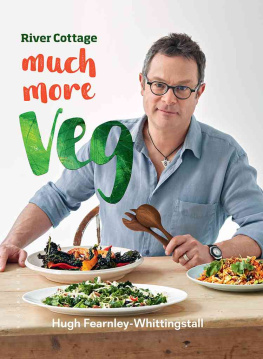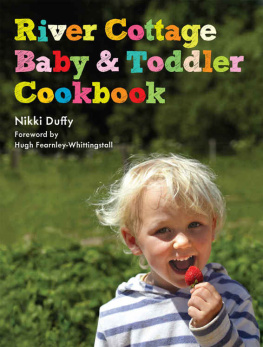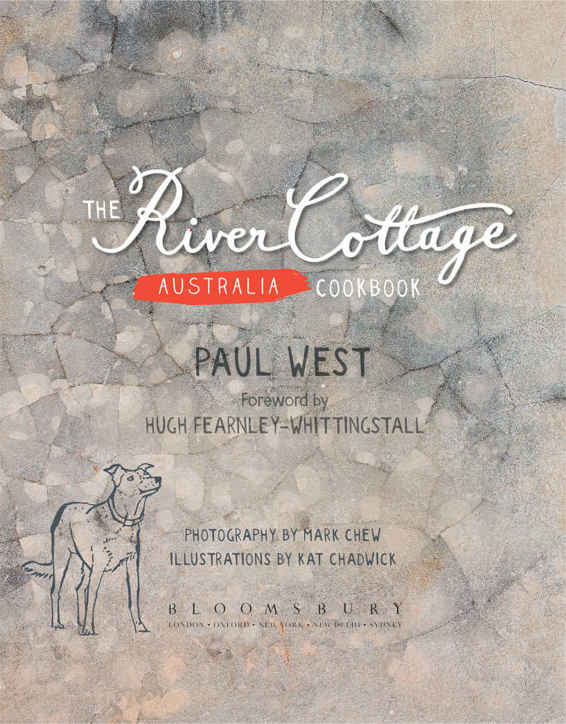
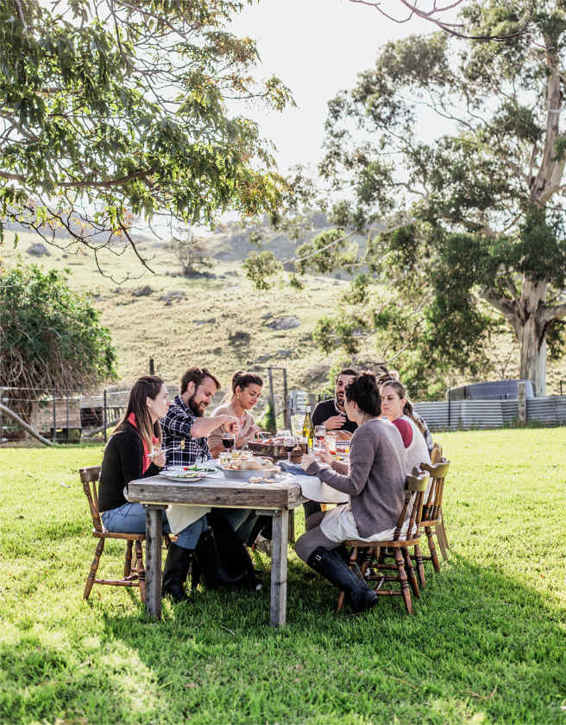
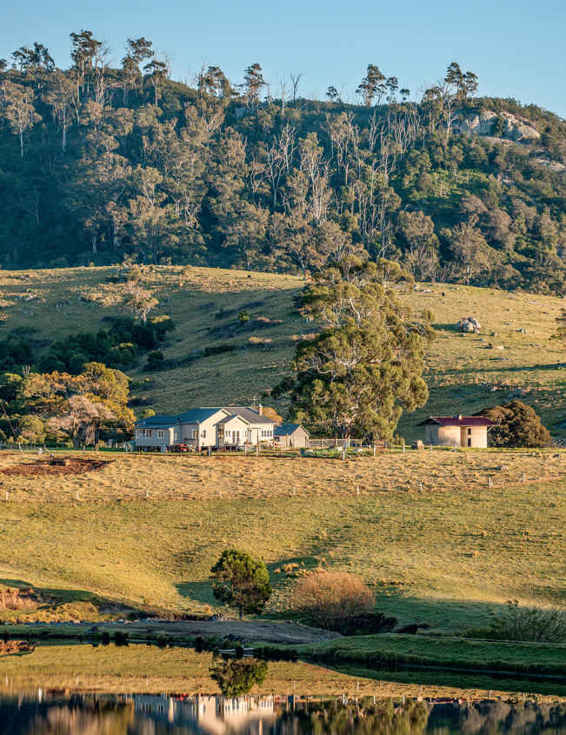
FOREWORD BY HUGH FEARNLEY-WHITTINGSTALL
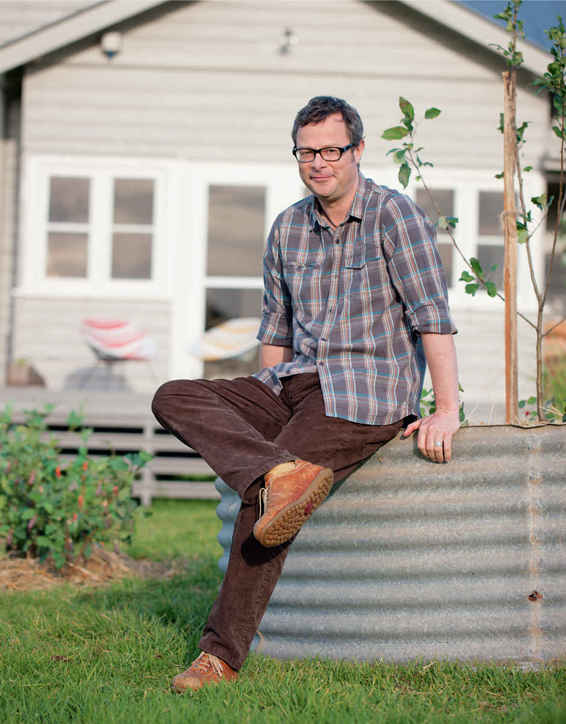
Y ou never know, as you start a journey, exactly where it will lead you. When I was taking my first tentative steps towards a more self-sufficient life at River Cottage, in the English county of Dorset, my attention was very much much on day-to-day issues such as protecting my fledgling veg patch and locating wayward hens (and, believe me, a fledgling veg patch and wayward hens are not a happy combination!). I certainly never imagined I would one day find myself on the other side of the world, digging the fine Tilba tilth and planting carrots with a young Aussie chef who was plunging headlong into his own version of the River Cottage experience. Indeed, in those early days, when I seemed to spend more time making mistakes than recording successes, I might have responded to the idea of anyone wanting to tread a similar path with a sardonic laugh.
And yet, fifteen years on from my first forays into producing my own food, the spirit of those endeavours has flourished and, indeed, travelled. Id be lying if I said I wasnt rather proud.
From the outset, though, Ive known Im not alone in wanting a better, more fulfilling relationship with food. The success of the River Cottage enterprise is in no small part down to a groundswell of feeling that I was able to tap into. From day one, I was constantly meeting people who shared my desire to eat tasty, well-produced local fare and to avoid the processed, the machine-made and the unseasonal. And thats just as true today: there are countless individuals who feel disillusioned with modern food-production and if youre reading this book, Id guess theres a more than reasonable chance that youre one of them. Welcome!
My decision to move to the country in 1999 was inspired by an urge to cut out the middle man, to get back to the source of the fruit, veg, meat and bread I put in my shopping basket and, wherever possible, to lose the shopping basket altogether. As an avowed foodie both a restaurant critic and a chef I was feeling an increasing sense of dislocation from the food I was eating. It wasnt just that so much of what was on offer was of poor quality, but also that a lot of it was also somehow mysterious or at least raised some troubling questions. What were all those additives? Why did so many vegetables look like theyd been steam-cleaned and polished? How come the supermarket shelves were so overloaded with chicken breasts where was the rest of the bird?
I didnt want to simply answer these questions I wanted to go beyond them, to get to grips with what I was eating, so to speak. And I couldnt think of a better way to do that than to start producing some of it myself. I wasnt a total novice I had fond memories of my Dads vegetable garden and the lovely dishes my Mum would cook with the harvest that came from it; I knew what fresh food ought to look like, smell like and taste like. But still, it was a big step to actually roll up my sleeves and start digging. Why? Because our society, our food culture, is increasingly geared away from people actually having anything to do with the things they put on their plates. In order to reconnect with my food and drink, a complete step-change was in order.
Growing, gathering and raising my own food has brought me huge satisfaction, not to mention many delicious meals. There are few things more wonderful than feeding your family with something you have not just cooked but produced yourself. Ive got to say that, as I dug deep into the issues surrounding our modern-day diet, I uncovered some very disturbing truths so much so that I was compelled to take action. River Cottage campaigns including Chicken Out! and Hughs Fish Fight have grown out of the knowledge that some of our food is produced and harvested in truly shocking ways. However, the depressing facts have always been balanced by the uplifting ones. For every sad and sorry story of factory farming or dubious ingredients Ive come across, Ive discovered something inspiring and hopeful: local people joining together to share land and raise food, a huge proliferation in organic box schemes and farmers markets, schools where the kids grow their own veg, campaigners who refuse to be silenced and many, many producers of really wonderful ingredients.
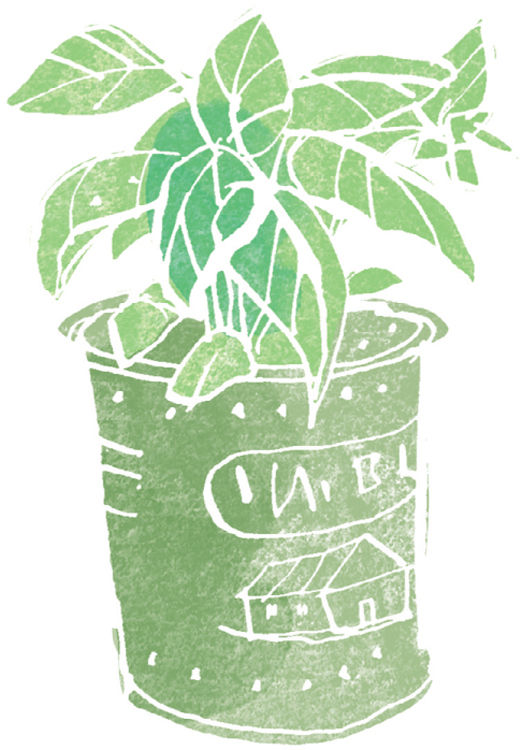
If, like me and like Paul West, you want to resist the pull towards mass-produced factory fare, you neednt up sticks and move to a remote outpost, or chuck in the day job and start buying piglets though of course Id heartily applaud such commitment! But in fact, you dont have to move an inch from where you are now in order to start feeling happier about the food you buy, cook and eat. We all have the option of doing things differently, no matter where we live, what we do or how much we earn.
Early on in my River Cottage venture I developed the idea of a food acquisition continuum. This is just a fancy way of describing the spectrum were all on with regard to where our food comes from. At one end of the continuum (the far right, if you like) is complete dependence on industrialised producers and big retailers, and at the opposite end (lets call it the far left), total self-sufficiency. Wherever you are on this continuum, I firmly believe that any shift towards the left, however slight, is a move in the right direction.
Such a shift might be signalled by something as simple as buying your eggs from a neighbour with free-range hens, or visiting a pick-your-own farm in strawberry season. It might mean growing a few pots of herbs on your windowsill or baking a loaf of your own bread now and then. Any small decision of this kind is significant its profound, in fact, because it means you are wresting back a little bit of control over your own nourishment and nutrition.
And small steps often lead to larger ones. Choosing to eat or shop in a more positive and sustainable way almost inevitably results in a sense of satisfaction and achievement that will encourage you to make more changes. You might even find yourself keeping a couple of chooks in your own backyard, or planting a fruit tree; maybe growing some veg or blowing the cobwebs off that fishing rod in the attic. In my experience, all these things will bring you a far greater understanding of your food, and a deeper pleasure when you come to tuck into it. Theyll make you a better cook and a wiser eater and thats got to make for a more fulfilling life.
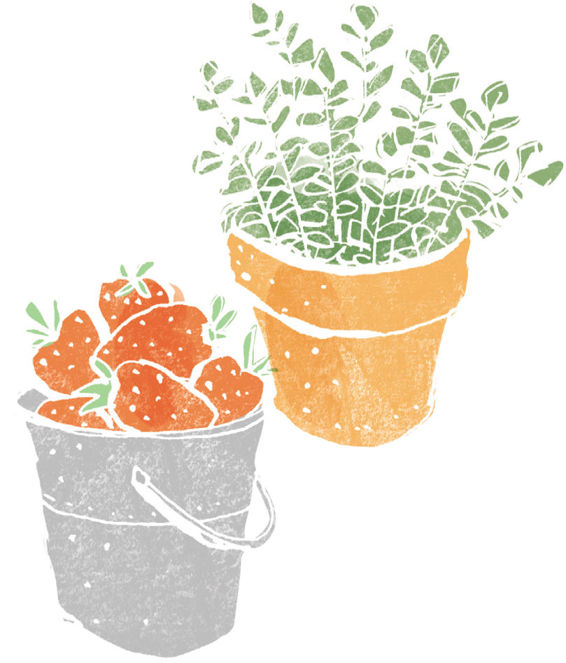
I know Paul agrees, because he walks the talk every day, in his kitchen, garden and paddocks at River Cottage Australia. In him, Ive found a fantastic colleague and a trusted new friend (or mate, perhaps I should say). Paul shares the pioneering spirit I hope I exhibited when I set out on my River Cottage undertaking and he has all the good humour and adaptability essential to anyone launching themselves into the project of self-sufficiency.
Paul certainly knows his food hes a wonderful, natural chef. His learning curve when it came to producing that food himself was steep, just as mine was, but its been a joy to watch him get to grips with everything from hen-house building and seed-sowing to bartering and water management. I know that anyone who has watched the River Cottage Australia series will have learnt a huge amount from his endeavours.
Next page
